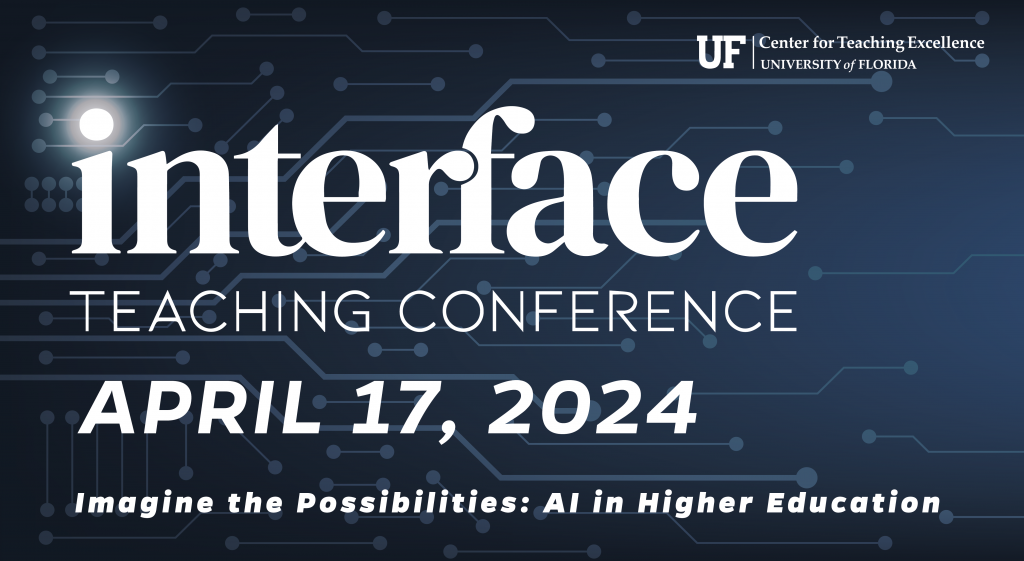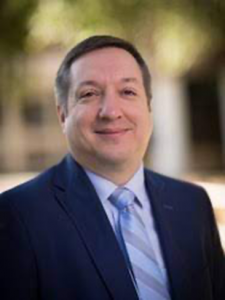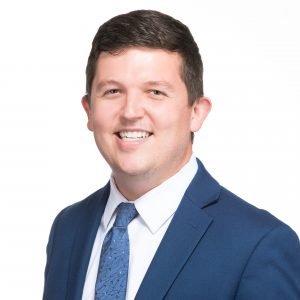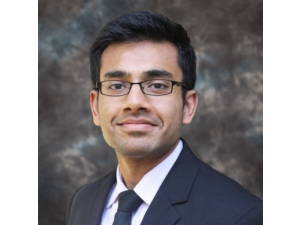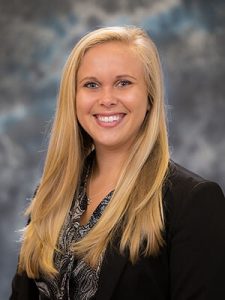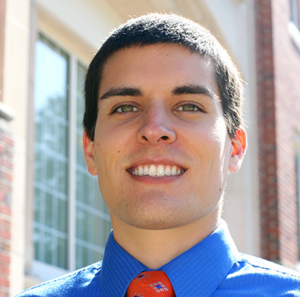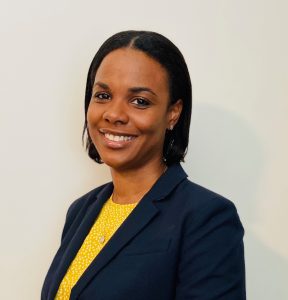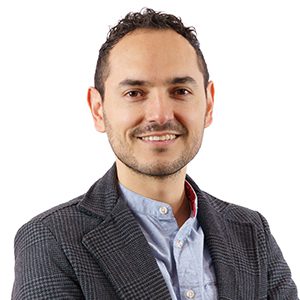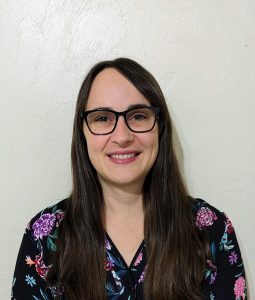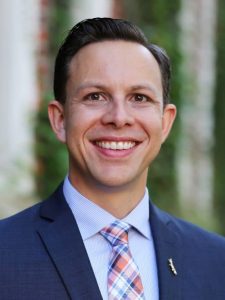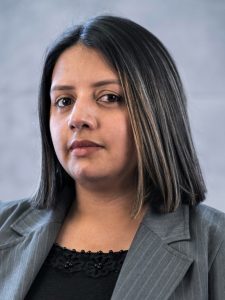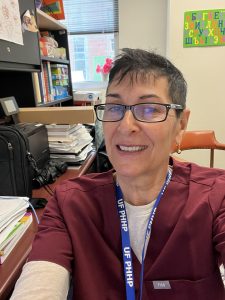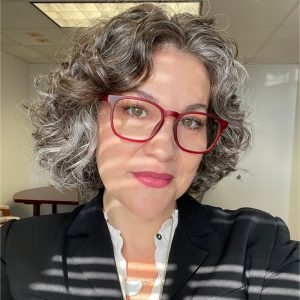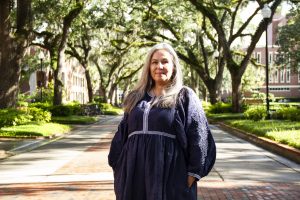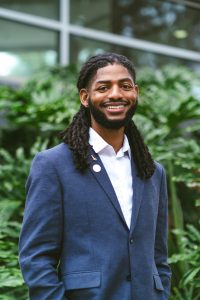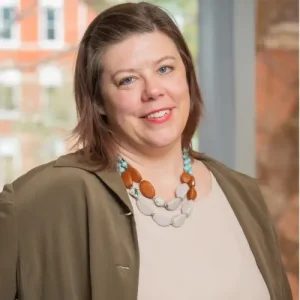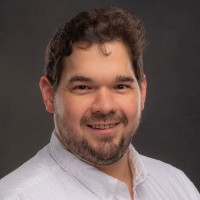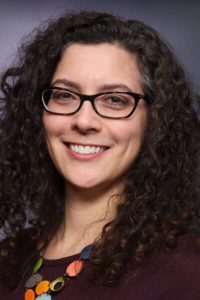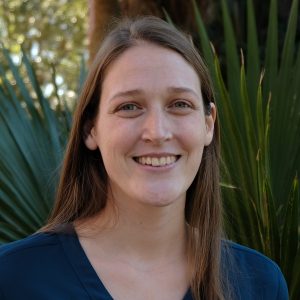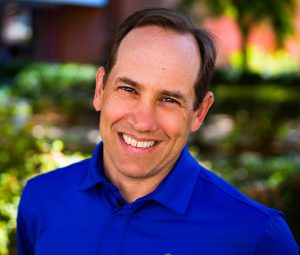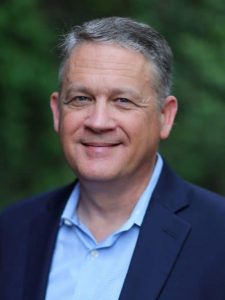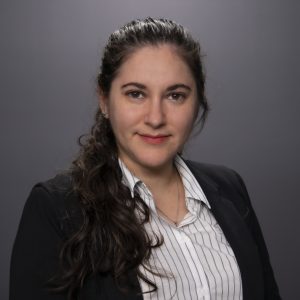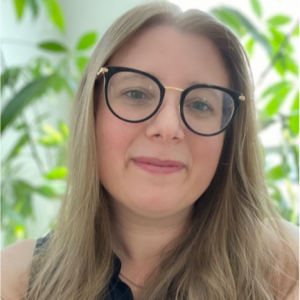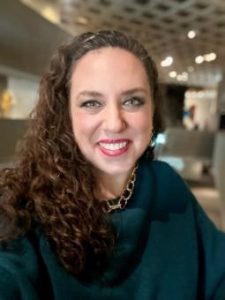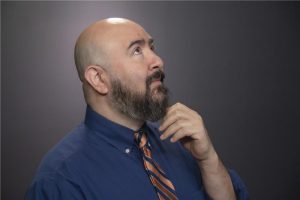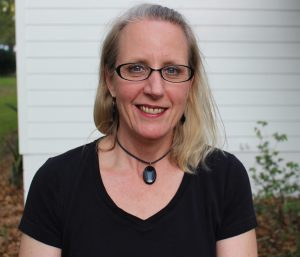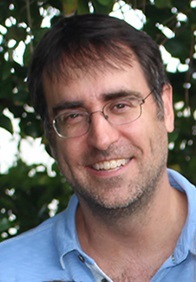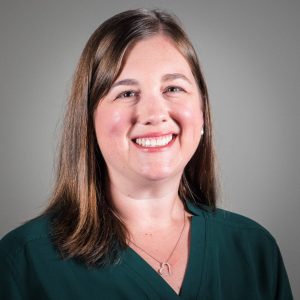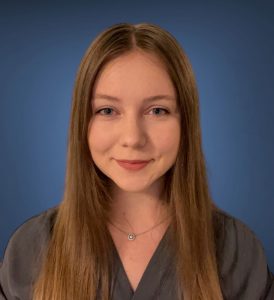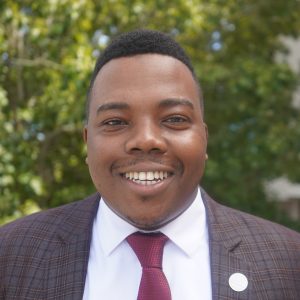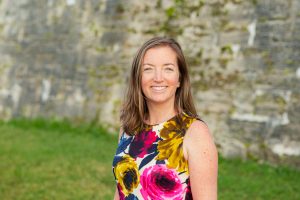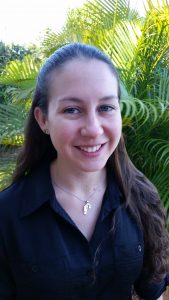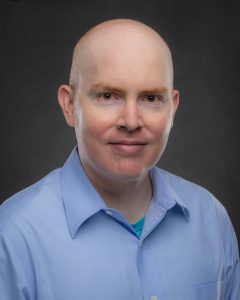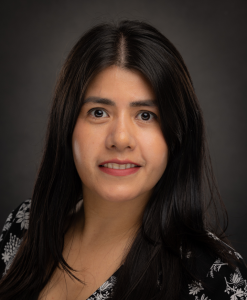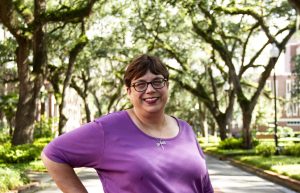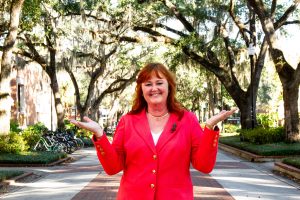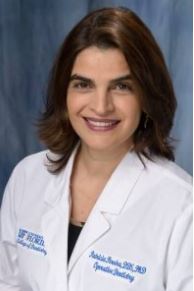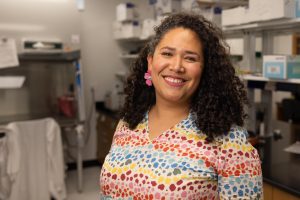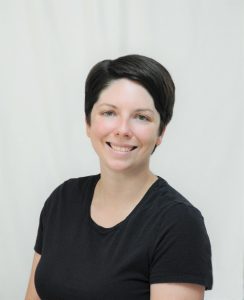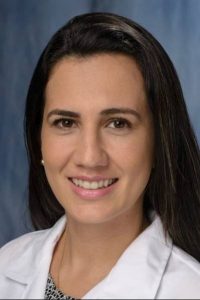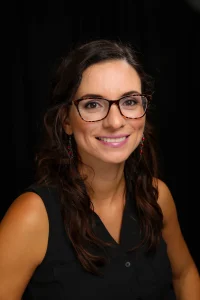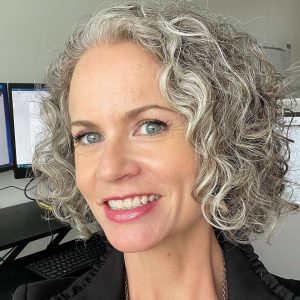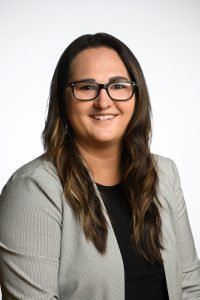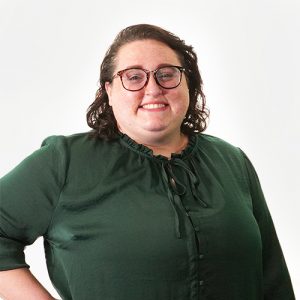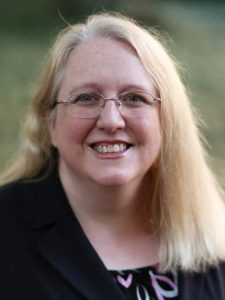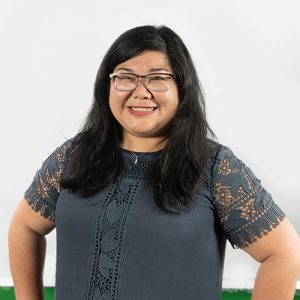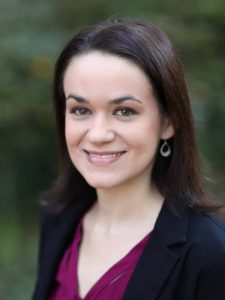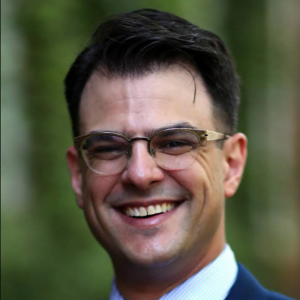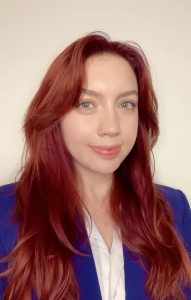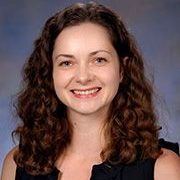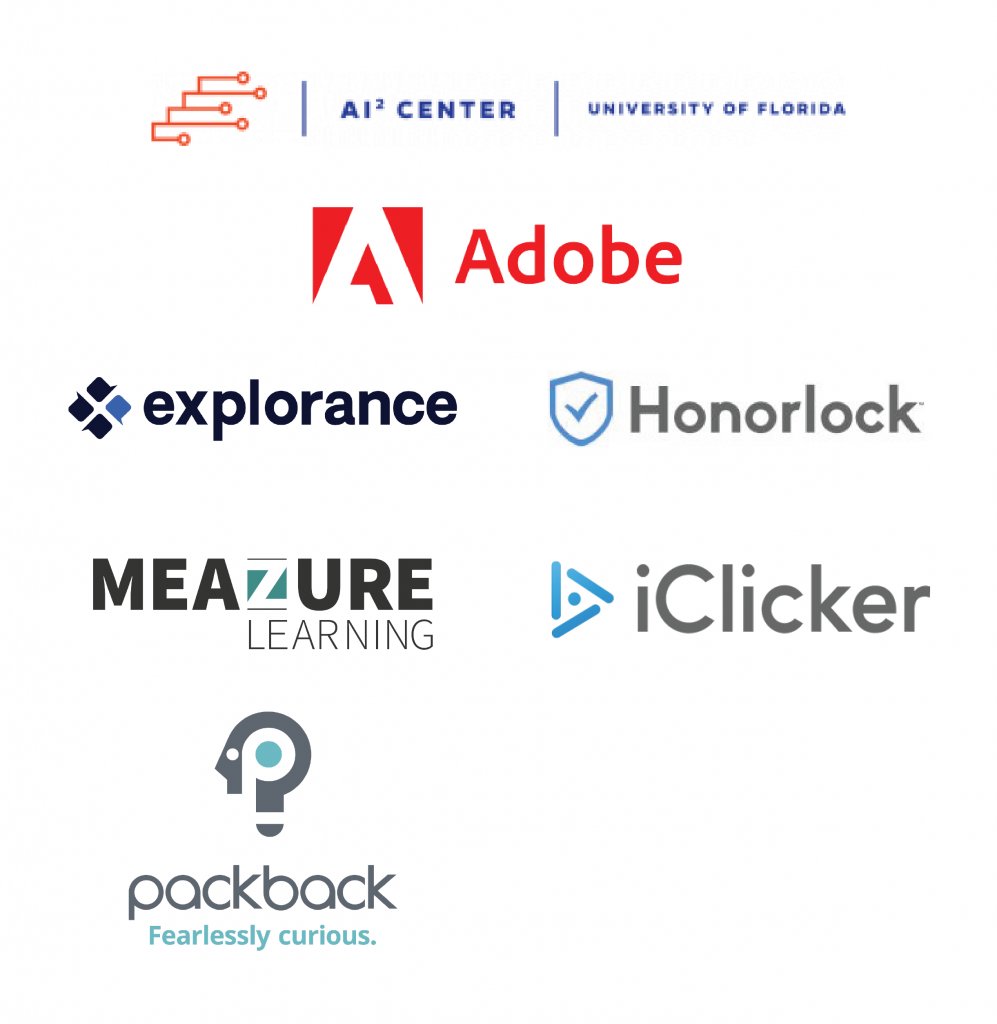Interface Teaching Conference 2024: Registration Closed
Imagine the Possibilities: AI In Higher Education
April 17, 2024
Emerson Alumni Hall
8:15 am – 4:30 pm
The Interface Teaching Conference offers faculty, staff, TAs, GAs, and postdocs with innovative teaching and learning approaches in interactive breakout sessions. This single-day event will showcase sessions tailored to incorporate Artificial Intelligence (AI) into teaching and learning. The classroom’s evolution has been profound in recent years, and this transformation will persist with the substantial integration of AI. This year’s Interface is dedicated to exploring AI’s impact on teaching and learning, with a particular emphasis on how the classroom has been reshaped by AI. Our goal is to center the presentations around AI’s influence on the classroom environment.
Keynote Speaker
Todd D. Zakrajsek PhD
Adjunct Associate Research Professor in the School of Medicine at the University of North Carolina at Chapel Hill
Todd D. Zakrajsek PhD, is an Adjunct Associate Professor in the School of Medicine at UNC at Chapel Hill, where he develops resources for faculty on teaching/learning, leadership, and publishing. Prior to joining the SOM he was a tenured associate professor of psychology and built faculty development efforts at three universities. Todd has served on many educationally related boards and work groups during his four decades of teaching and faculty development. Todd’s recent books include Classroom Assessment Techniques 3rd ed., Teaching at Its Best, 5th ed.; The New Science of Learning, 3rd ed.; Teaching for Learning, 2nd ed.; Advancing Online; and Dynamic Lecturing. Todd has given keynote addresses, campus workshops, and conference presentations in 49 states, 12 countries, and 4 continents. Read more about his work at https://www.toddzakrajsek.com/.
Agenda
| 8:15am – 8:45am | Breakfast Location: Conference Rooms 207-208 |
| 8:45am – 9:00am | Welcome Location: Presidents Ballroom |
| 9:00am - 9:15am
|
Online Educator of the Year Award and the AI Awards The first annual AI Awards are sponsored by CTE, CITT and AI2. Location: Presidents Ballroom |
| 9:25am – 10:10am
|
Keynote sponsored by AI2 Center Todd Zakrajsek Location: Presidents Ballroom |
| 10:20am – 11:10am | Breakout A
Designing Immersive Learning Experiences with Artificial Intelligence In an era marked by rapid advancements in artificial intelligence (AI), the discourse surrounding its application in education often centers on its impact on students. Our panel seeks to shift the narrative towards a crucial yet underexplored dimension: how AI can serve as an invaluable tool for faculty and staff in enhancing course design. Our discussion will feature insights from professionals who have harnessed AI to streamline and elevate their course development. Join us as we explore innovative applications, share success stories, and delve into the transformative potential of AI in empowering educators. This panel invites a forward-looking conversation that encourages a paradigm shift towards the responsible and strategic integration of AI as a dynamic support system in course development. Can We Design “Better” Assignments? Should We? How open are you to allowing students to use AI chatbots for their assignments? This session discloses the iterations of design taken to integrate the use of AI chatbots into the large enrollment course IDS2935: Can We Design “Better” Humans? Should We? The pros and cons to fully support the student use of tools like ChatGPT are presented. Attendees will have the opportunity to partake in an assignment similar to one used in the course in which ChatGPT is used. Leveraging ChatGPT to Cultivate Critical Thinking Through Global Perspectives and Social Responsibility in STEAMM Education This 50-minute workshop is tailored for STEAMM (Science, Technology, Engineering, Art, Math, and Medicine) faculty, focusing on merging AI-driven methods with traditional teaching to foster critical thinking in students. Participants will explore how to apply these innovative techniques to help students approach and analyze complex, multi-dimensional problems in STEAMM subjects from various perspectives. First, the session will guide educators in using ChatGPT to create content that blends STEAMM subjects with global and social responsibility issues, leading to a curriculum that not only solves technical problems but also integrates aspects of economics, sociology, and sustainability. This approach aims to cultivate a comprehensive and life-long learning educational experience. Secondly, participants will learn to use ChatGPT for designing and conducting interactive activities like real life problems and case studies. These will be academically challenging yet globally and socially pertinent, deepening students' grasp of scientific and mathematical principles and their application in real-world and global contexts.
Join this workshop to learn how AI can be a pivotal tool in STEAMM education, equipping students to thrive in the diverse, interconnected, and ethically complex world of STEAMM fields. This session promises to transform teaching approaches, preparing students for success in a rapidly evolving global landscape.
Using AI to fast track accomplishing tasks with code For students new to coding, it can take a while before they are able to write their own code to accomplish a task. With AI coding assistants, new coders can tackle more challenging tasks more quickly but learning enough to understand the syntax and interpret code and use the coding assistants to generate the code. This session will demo coding assistants and sample projects that can be accomplished with them. |
| 11:20am –12:10pm | Breakout B
AI tools for teaching This session will introduce 2 free AI tools to support teaching and learning. We will briefly introduce each tool with tips for how to integrate it in the classroom. Then we will use a guided activity to experiment with one of the tools. Our tools are research rabbit and AI image generation. We will discuss specific ways these tools can be used for the development of course material as well as student assignments. How do we integrate LLMs into our courses? In this session, we will understand the challenges and opportunities that LLMs bring to the higher education table. We will focus on the opportunities and will show two prototypes of tools that involve LLMs and that can serve course administration and students’ help purposes. We will discuss the attendants' concepts on the use of these new technologies and their place in the classroom. Unpacking the Potential: Leveraging AI to Create Engaging Online Learning Communities In the realm of higher education's online classrooms, the AI-enabled tool Packback has had a substantial impact on creating engaging learning communities. This faculty panel presentation aims to spotlight the transformative potential of AI in enhancing the teaching and learning experience. Both Packback Questions, an AI-enabled discussion tool, and Packback Deep Dives, an AI-enabled writing assistant, will be discussed within this session. This moderated panel will showcase how four University of Florida faculty members from diverse academic disciplines have adapted Packback to cater to their unique teaching styles and students' learning needs. They will share their experiences, strategies, and insights on how Packback has been instrumental in achieving learning outcomes and fostering dynamic and engaging online learning communities. Notes from the Field: Using AI in Business Communication Courses In this session, we will discuss our efforts to incorporate AI writing tools – including ChatGPT, Grammarly, Bard, and others – into our graduate-level communication courses in UF’s Warrington College of Business. More specifically, we will describe our efforts to design effective AI course policies, the successes and failures of in-class AI-based writing activities, and how AI writing tools have impacted each part of the writing process, for good and for ill. Specific topics of discussion will include: (1) generating examples/scenarios for students to analyze, practice, and revise; (2) walking students through prompt engineering; (3) using AI to revise examples or student work in real-time workshops; (4) using AI as a "peer reviewer" to get feedback/revise; (5) generating ideas for individual assignments. |
| 12:20pm – 1:00pm | Lunch Location: Conference Rooms 207-208 |
| 1:00pm – 1:30pm | Awards Location: Presidents BallroomJoin the Center for Teaching Excellence in congratulating the Rising Star Award winners, Affordable Access Award honorees, the Trailblazers: Online Education Professional Awards winners and Exemplary Online Teaching Award winners. |
| 1:40pm – 2:45pm | Resource Fair, Poster Sessions, and Speed Breakout Sessions.
Resource Fair Location: Warrington Conference Room and Hallways Learn about resources from our sponsors and from across campus that help realize innovative teaching practices discussed in the breakout sessions. Meet colleagues from the different offices and centers on campus that support your teaching practices. Poster Sessions Location: Conference Rooms 207-208Immerse yourself in the forefront of groundbreaking research at our poster session, where leading scholars will unveil their latest findings. From exploring cutting-edge technologies to investigating novel theories, each poster offers a glimpse into the future of its respective field. Engage with presenters firsthand as they share insights, methodologies, and implications for their work.
Fostering Responsible Relationships Between Students and AI in the Classroom
Stages of AI Grief: The Death of Bloom’s Taxonomy as we know it
Critical Evaluation Of AI Generated Content: The Fluf Test
What do Students think about AI?
AI-I, Using AI to Teach AI in Health Science Undergraduate Course
Raising Student Preparedness Using Perusall
Using AI Chatbots to Support English Learners’ Oral Language Development
Instructional Designers and Generative AI: Integration and Support
Generative AI as Writing Tutor: Approaching Written Assignments in Light Of Llms
Integration of Generative AI into a Drug Information Assignment
Speed Breakout SessionsThese dynamic 15-minute sessions are offered three times during this timeframe. Sessions will begin at 1:45pm, 2:05pm, and 2:25pm. Introducing AI into First-Year Professional Development Artificial intelligence, namely ChatGPT, is a readily available tool for students, especially as they prepare to begin their professional careers as college students. However, they may need guidance in using it ethically and effectively. In an honors professional development course for 60 engineering students, the instructor developed an AI starter guide to share with students. It covers topics like finding internships, tailoring resumes, and preparing for interviews. We'll talk about how the instructor developed the starter guide and provide tips for how other instructors can adapt the materials for their own unique student populations. ChatGPT on the Stand: Authentic Assessment in Legal Psychology This session will demonstrate an online platform for a legal psychology class where students participate in an authentic assessment by interviewing twelve chatbots powered by generative AI. These chatbots represent potential members of a jury, and students will roleplay as a prosecutor or defense attorney during voir dire. By interviewing these twelve personalities, students will identify answers that reveal the psychological factors that should be weighed when selecting and rejecting members for a jury. In the assignment deliverable, students will eliminate jurors and provide justifications for their legal challenges. This adoption of generative AI demonstrates the ability of the technology to scale authentic assessments for high enrollment courses. New Quizzes in Canvas This presentation will showcase Canvas's New Quizzes tool, a powerful new quizzing engine that features new question types, including hotspot, categorization, and ordering. This session will be more of a demonstration than a “how-to,” as training sessions on creating New Quizzes will be offered in the coming months. Come and witness the future of online assessment! AI 2 Presentation This session is an overview of UF’s definition of AI for the purposes of course designation and an overview of the new UF AI Course Designation Process. You will come out of this session with an understanding of the fundamental steps needed to obtain (or retain) a UF AI course designation, learn about the five UF AI course designated categories and their associated Student Learning Outcomes (SLOs). |
| 2:55pm – 4:00pm | Breakout Sessions C 30 minute sessions. Please note these breakout sessions may have multiple workshops per room. Location: Classroom Implementing an AI Spanish ChatBot in Language Instruction Presented by: Matt Michel and Marcela Murillo The advent of Artificial Intelligence (AI) in education has opened innovative avenues for both teaching and learning experiences. This presentation examines the implementation of an AI-powered ChatBot tailored for Spanish language education, assessing its effectiveness as an aid for students and teachers, with a focus on reinforcing critical thinking and review skills. The study outlines how the ChatBot’s real-time conversational practice and immediate feedback can significantly inform course design, ensuring content is dynamically tailored to individual student needs. By analyzing the interaction data, educators can pinpoint specific areas where students commonly struggle, allowing for targeted course adjustments and enhancements. Melt Your Audience with AI-Infused Icebreakers Explore a lightning speed round about using AI for inclusion activities to engage learners. Whether you are working with staff or students, these activities will break the ice in a fun and entertaining way. Location: Presidents Ballroom A Using AI to Enhance Course Design: From SLO Changes to New Student Assessments We leveraged ChatGPT during a student learning outcomes (SLOs) update process to improve the alignment between SLOs, course content coverage, and assessment of learning in several general education chemistry courses. In this session, we’ll share our process of creating the course architecture map in collaboration with ChatGPT, and resources for replicating this method. We’ll also emphasize the addition of new AI assignments, including use of Perusall, to better meet the need of connecting chemistry topics to relatable real-life applications, as well as to enhance critical thinking. Lastly, we’ll discuss using Generative AI to summarize the topics students self-identify as still challenging prior to upcoming examinations to guide remediation and student support efforts. We will reserve time to practice implementing these techniques in other disciplines. Tried and Tested: A Process for Generating AI Exam Questions Creating high-quality multiple-choice (MC) questions for exams is a labor-intensive process for many faculty members. Generative AI holds potential for increasing the efficiency and productivity of creating exam items. Using an AI summarizing tool (ChatPDF), the College of Dentistry Office of Academic Affairs explored the potential of using existing course content to generate exam items. We employed a human-in-the-loop process of subject matter expert review to ensure quality. This presentation will describe a replicable process for AI item generation. We will also share results of two pilot studies indicating quality levels of the AI generated MC items compared with faculty created MC items based on blind peer review ratings and student performance. Location: Presidents Ballroom B Teaching Tomorrow's Workforce: Using AI to Seamlessly Integrate Career Development into Curriculum In this session, we will highlight how faculty can use AI to integrate career development into their teaching practices. We aim for participants to leave with an understanding of how AI is reshaping global hiring practices so that we as an institution can better equip our students for competitive job markets by fostering AI fluency in an AI-integrated workforce. Faculty will learn practical strategies to incorporate AI in the curriculum to foster career development within the classroom. We will emphasize the significance of AI literacy and explore ethical approaches to using AI in career contexts. In addition, faculty will receive a demonstration of AI tools like Quinncia and ChatGPT that can be used to integrate career development into the learning experience. Join us for insights tailored to empower faculty in bringing AI advancements directly into your classrooms. Creating a shared definition of Artificial Intelligence and integrating AI into your courses One of the reasons that it is challenging to incorporate Artificial Intelligence (AI) into courses is that we don’t have a shared understanding of the definition of AI. In this presentation, I’ll provide a broad definition of AI and then then discuss how you could incorporate AI into your existing courses. At UF, we are also reporting how you use AI in your courses as part of the Quality Enhancement Plan (QEP). I’ll describe in plain language how to categorize your level of AI use into the levels we have defined for the QEP. Location: Presidents Ballroom C Use of Bing Image Creator to generate A.I. custom images for class lectures, assignments and other instructional activities Attendees will learn about the benefits of using Bing Image Creator, which is an A.I. tool that can be used to quickly generate high quality stock images. Images produced from this program can be used for a variety of instructional activities including: teaching aids for instructor presentations, various class assignments such as student presentations, and creating images for social media projects such as Instagram posts and stories. During this session, specific examples will be given for various uses of the Bing Image Creator within classroom settings. The use of “prompt engineering” will also be discussed to illustrate the importance of using appropriate terms in order to generate that “ideal image”. After this short presentation, there will be an interactive session, which will involve dividing participants into small groups. Each group will work together using the Bing Creator to generate a series of their own images, that could be used in their educational setting. At the conclusion of this session, we will have the various groups share their generated images with other participants in the session and also discuss how they could incorporate this tool in their classroom instruction. To Use ChatGPT or Not? Harness The Power to Help Students We will show ways to use ChatGPT to help students complete work and assignments without over reliance and plagiarism.
|
| 4:10pm – 4:30pm | Wrap Up and Prize Giveaways *Please note that you must be present to win for the giveaways Location: Presidents Ballroom |
Presenters

David Adams, M.A.
Assistant Director for Career Pathways – Business, Public Service, and Tourism
Career Connections Center
David is a career development educator with 7+ years of experience in career services. His goal is to connect students to programs, resources, and partnerships with employers and colleagues. His skills include expertise in career readiness; proficiency in program and career management; and communication, resourcefulness, and collaboration. David is a Certified Career Services Practitioner and a current student in UF’s Higher Education Administration Ed.D. program.
 Ashish Aggarwal
Ashish Aggarwal
Instructional Associate Professor
Ashish Aggarwal earned his B.Tech in Computer Science and Engineering from the Jaypee University of Information Technology, India before earning his M.S. in Computer Science from the University of Florida in 2017, specializing in computer science educational research and human centered computing. His works included developing of computational reasoning skills and mental simulation ability in K-12 students using Kodu Game Lab environment. As a faculty member he focuses on research and improvement of computer science education in engineering students.
 Garrett Beatty, Ph.D.
Garrett Beatty, Ph.D.
Instructional Associate Professor; MS Program Coordinator
Department of Applied Physiology & Kinesiology
Garrett Beatty joined the College of Health & Human Performance as a Lecturer in August 2015. Garrett studied Biobehavioral Science under the mentorship of Dr. Christopher Janelle. Garrett’s research interests include studying the strategies individuals employ to regulate emotional experiences in order to improve human performance within emotionally charged environments. Garrett is also interested in investigating how social, psychological, pedagogical, coaching, and management principles can be leveraged to enhance the career and life development of athletes. As a lecturer, Garrett aims to disseminate knowledge garnered from cutting-edge research to undergraduate and graduate students studying sports psychology, exercise psychology, and athlete development. Garrett is constantly seeking ways to incorporate technology into teaching strategies for on-campus, blended, and fully online courses.
Stacey-Ann Benjamin
Assistant Instructional Professor
Department of Chemistry
Stacey-Ann received her Masters of Science in Teaching and PhD in Analytical Chemistry from the University of Florida. Her love for teaching and interacting with students led her to pursue a full-time profession as a general chemistry instructor in higher education. Currently she teaches both residential and UFO sections at UF and has worked on redesigning the CHM 2045 UFO course to improve student interaction and success.
 Gabriel Castelblanco
Gabriel Castelblanco
M.E. Rinker, Sr. School of Construction Management
Assistant Professor
Before joining Rinker, Dr. Gabriel Castelblanco was an Assistant Professor in the Department of Management Engineering at the Polytechnic University of Turin in Italy, Lecturer and ad-hoc researcher in the School of Engineering at the University of Central Lancashire (UK). He taught Project Management and Construction Project Management. He has collaborated with universities in Latin America (Chile and Colombia), Europe (the Netherlands, the UK, and Italy), and an Australian research center (CSIRO – Commonwealth Scientific and Industrial Research Organisation). Dr. Castelblanco also worked as a practitioner for more than eight years in Real Estate Project Management.
His research focuses on decision support systems, governance, and risk analysis for alternative project deliveries. He has published over 20 peer-reviewed papers in the fields of P3s and project finance. He is also an Associate Member of the ASCE and a reviewer for its Journal of Management in Engineering and the Journal of Construction Engineering and Management. His experience as a project management practitioner adds value to his academic role to guide students in combining theoretical principles with real-world experience. He encourages students’ collaborative problem-solving approach in an environment where making mistakes is safe, which empowers them to bring their experiences and prior knowledge to the class.
 Dr. Danielle Collins, PhD.
Dr. Danielle Collins, PhD.
Lecturer, Dog, Cat, & Horse Classes
Dr. Collins is a post-doctoral associate lecturer at the University of Florida, working with both Drs. Patrick and Iske Larkin. She teaches four online courses with Dr. Patrick Larkin every semester and conducts a variety of different educational projects. Some of these projects include analyzing and coding online educational data for publishing manuscripts, and conducting several collaborative research projects using Chatbots, Packback, and other tools to improve student learning.
 Anthony Coman
Anthony Coman
Instructional Associate Professor
Management Communication Center - Warrington College of Business
Dr. Coman teaches professional writing in the Management Communication Center. His classes offer students portable strategies for writing clear, effective workplace documents. He has over 10 years of experience working with students who are from different backgrounds and at different stages in their career, helping them to achieve their communication goals through mastery of grammar, rhetoric, and style.
 Laura Melissa Cruz Castro, Ph.D.
Laura Melissa Cruz Castro, Ph.D.
Assistant Instructional Professor
Laura Melissa Cruz Castro’s research interests focus on computational thinking at scale and data science education. She looks at K-12, higher education, professional, and community settings for both research interests. She holds a bachelor’s degree in statistics from Universidad Nacional de Colombia, an M.S. in computer engineering, and Ph.D. in engineering education from Purdue University. In addition, she is interested and participates in community activities that aim to broaden the participation of women and other marginalized academic groups in computing professions.
Implementing project based learning (PBL) into traditional engineering curriculum and courses. PBL prepares students for their professional careers by effectively allowing them to use the technical skills gained during the course to identify a problem, develop and solution, and implement their ideas. PBL is also imperative for training student in product development and manufacturing careers.
 Elizabeth Diehl, RLA, HTM
Elizabeth Diehl, RLA, HTM
Director of Therapeutic Horticulture
Lecturer in Environmental Horticulture
Elizabeth (Leah) Diehl developed and manages an undergraduate certificate program in horticultural therapy at UF, offered to both degree-seeking and non-degree students. She also manages therapeutic horticulture programming on campus for diverse populations and research studies that explore the impact of plants and nature on health and wellness.
 Sharon DiFino, PhD, CCC-SLP
Sharon DiFino, PhD, CCC-SLP
Clinical Assistant Professor of Speech, Language, and Hearing Sciences
College of Public Health and Health Professions, Speech, Language, and Hearing Sciences
Sharon DiFino is a clinical assistant professor in the department of Speech, Language, and Hearing Sciences, where she teaches a range of undergraduate courses. She is the director of the Bilingual Language Access and Outcomes Lab where the research focus is on language and cultural barriers to equitable health care. Her research interests include second language acquisition, speech perception in Heritage Speakers, bilingualism, and multiculturalism. Dr. DiFino is also the University of Florida chapter advisor for the National Student Speech, Language, and Hearing Association. She is a licensed speech-language pathologist (SLP) in Florida and has experience with pediatric and adult populations.
 Lupita Eyde-Tucker
Lupita Eyde-Tucker
Online Course Design Specialist
UF Center for Teaching Excellence
Lupita joined CTE in 2023 as part of the Online Course Quality Team. In addition to collaborating in the online course review process helping online courses meet UF+QM standards, she is the project manager and lead facilitator for CTE’s Great Online Course Series. Lupita holds an MFA in Creative Writing from the University of Florida, and a B.A. in Business Economics from the University of South Carolina. A life-long writer and educator, she has taught English since 1996 at every level: from elementary to undergrad. Lupita is a published poet and translator, and when she is not designing courses and thinking about Backward Design, Lupita spends as much time as possible outside enjoying Florida and practicing black and white portrait photography with her 50-year-old Nikon FTN film cameras.
Strategic Initiatives and Partnerships Coordinator
University Honors Program
TehQuin D. Forbes is the University of Florida’s Honors Strategic Initiatives and Partnerships Coordinator. He wears many hats in his efforts to work with internal and external partners, all to the ends of helping carry out the UF Honors strategic plan. He works directly with prospective Honors students, their families, and colleagues both at UF and other institutions to usher a diverse group of individuals into Honors and guide accepted students’ transitions to campus. He also works closely on programmatic efforts to engage alumni of the honors program.
 Betsy Gilbertson, M.ED.
Betsy Gilbertson, M.ED.
Instructional Designer, Auburn Online
Betsy Gilbertson joined the Auburn Online team in 2011 as an Instructional Designer. Betsy holds a M.Ed. in Curriculum and Instruction in Adult and Higher Education and a B.S. degree in Visual Arts.
Betsy has decades of experience in course design and faculty development. Her first international conference presentation was in July of 2008, which highlighted how to bring online learning to life with video. She continues to present on important topics as trends and technologies evolve. Betsy believes in building educational environments that incorporate active and engaged learning. She is passionate that those learning environments include diversity, equity, inclusion, and justice through the use of academic pedagogy and technology. Betsy has four children and is a doting grandmother.
 Matt Gitzendanner Ph.D.
Matt Gitzendanner Ph.D.
Scientist
UFIT Research Computing/Department of Biology
My background is in plant evolutionary genetics and genomics where I use genetic tools to study the conservation, evolution, and diversity of plants. The field is generally computationally intensive, and I have worked for 10 years training users how to use HiPerGator and other high-performance computing systems to do the amazing research that is done across the University of Florida campus.
 Michael Goldberg, PhD
Michael Goldberg, PhD
Career Design Learning Specialist for Advanced Degrees
Michael is a veteran educator at the secondary and post-secondary levels. A recent addition to the Career Connections Center, his work focuses on graduate student career planning and designing ways to incorporate career into instruction across campus. An avid reader and learning, Michael hopes to grow his knowledge of career development and offer unique and exciting opportunities for the campus community.
 Ariel Gunn, Ed.D.
Ariel Gunn, Ed.D.
Instructional Designer
UF’s College of Medicine
Ariel Gunn is an instructional designer at the Southeastern National Tuberculosis Center, a CDC TB Center of Excellence within UF’s College of Medicine. With a background in teaching and tutoring writing, Ariel brings a student-centered approach to her work and creates inclusive and accessible learning experiences. Her research interests include equitable and authentic assessment and the roles instructional designers play to support effective use of established and emerging technologies.
 Gabriela Hamerlinck
Gabriela Hamerlinck
Assistant Instructional Professor
CLAS, Geography
Gabriela Hamerlinck is an assistant instructional professor of medical geography and global health in the Department of Geography. She completed her PhD in Biology at the University of Iowa, and completed postdoctoral positions in quantitative biology education and vector borne disease modeling. Her academic interests include ecological modeling of host-parasite interactions to understand the spread of disease, and discipline based education research.
 Brian Harfe
Brian Harfe
Professor, Associate Dean, Interim Associate Provost
UF College of Liberal Arts and Sciences, UF Teaching and Technology
Dr. Brian Harfe is a Professor in the College of Medicine. He has published more than 100 papers in developmental biology that have been cited over 20,000 times. Currently, he teaches an innovative course he designed entitled “Can we design ‘better’ humans? Should we?” to more than 500 undergraduates each academic year. He is the Associate Dean for the Natural Sciences and Mathematics in the UF College of Liberal Arts and Sciences and Interim Associate Provost.
 Dr. Jim Hoover
Dr. Jim Hoover
Clinical Professor of Marketing
Director, Business Analytics & Artificial Intelligence Center
Warrington College of Business
Jim Hoover is a clinical professor of Marketing in the Warrington College of Business. He is also the Director of the Business Analytics and Artificial Intelligence Center at UF. In 2023 & 2024, Jim is serving as the Faculty Fellow in the Artificial Intelligence Academic Initiative (AI2) Center where he is helping to advise the Center on efforts related to the teaching of AI across the University.
 LAURA JERVIS
LAURA JERVIS
Instructional Designer
CITT
Laura Jervis has a bachelor of science in journalism and a master’s in bilingual/bicultural education from the University of Florida. Before finding instructional design, she taught academic English to post-secondary language learners. Now she applies her teaching experience and her passion for equity and inclusion to the work she does to support UF faculty. In addition to course design, she educates instructors about what they can do to make their course more accessible and how it positively impacts students.
 Margeaux Johnson
Margeaux Johnson
IT Analyst II
UFIT Center for Instructional Technology & Training
Margeaux Johnson is a Learning Tools Specialist with the UFIT Center for Instructional Technology & Training (CITT). She has designed learning experiences for diverse fields including Dentistry, Nursing, Public Health, Engineering, and Mathematics. With 20+ years of experience in higher education, her expertise has focused on pedagogically sound integrations of emerging technologies. Her current research interests as a doctoral student in Educational Technology examine adoption of AI integrations for teaching and learning across the curriculum.
Interim Director
University Honors Program
Dr. Melissa L. Johnson is the Honors Program Interim Director. She previously served as the Senior Associate Director for the program. A lifelong “honors” student, Dr. Johnson’s personal drive for challenge and growth is the groundwork for her commitment to high-achieving Gators – and her role in facilitating the office committed to them. Known across the country as a leading expert in honors advising, Dr. Johnson brings together a vast knowledge of undergraduate honors education to her role. Helping students understand the value of the holistic Honors experience – including support by a staff who champion their ambitions, intellect and drive – provides meaningful purpose and lifelong connection.
 James Kocher
James Kocher
e-Learning Support Manager
Information Technology
James Kocher is the e-Learning Support Manager for Information Technology at the University of Florida.
 Iske V. Larkin, PhD
Iske V. Larkin, PhD
Senior Lecturer & Director of the Aquatic Animal Health Program, College of Veterinary Medicine, Department of Large Animal Clinical Sciences
Dr. Iske Larkin received her Ph.D. in 2000, from the UF College of Veterinary Medicine (CVM). She is currently in the CVM Large Animal Clinical Sciences Department, serving as the Aquatic Animal Health Program Director. This program provides education, diagnostics, clinical training and research support for managed care and wild aquatic species. Dr Larkin has been teaching online, aquatic animal health courses for more than 12 years. She currently offers 3 courses to upper-level undergraduate, graduate, veterinary and continuing education students.
 Patrick Larkin, Ph.D.
Patrick Larkin, Ph.D.
Program Director of The Dog, Cat, & Horse Classes Technical Administrator, Visual Guides of Animal Reproduction database
College of Veterinary Medicine, large animal Clinical Sciences Department
Dr. P. Larkin is the Director of the undergraduate UF PreVet online Program that is offered at the College of Veterinary Medicine. His classes are taken by students at the University of Florida and throughout the country. He has received several teaching awards and is conducting several collaborative research projects in the educational field using Chatbots, PackBack, and other tools to improve student learning.
 Bojan Lazarevic, Ph.D.
Bojan Lazarevic, Ph.D.
Clinical Assistant Professor
College of Education
Bojan Lazarevic's educational background is in instructional technology with an emphasis on online learning, media development, and emerging technologies. His work is strongly rooted in an interdisciplinary approach aspiring to bridge the science of learning and innovative online pedagogy with various academic fields such as medicine, language, and art. Dr. Lazarevic enjoys leading the EdTech undergraduate specialization and minor at the University of Florida. This professional engagement consists of a wide range of responsibilities that are not limited to the following: conceptualizing curriculum, coordinating instructional and program activities, mentoring course instructors, securing external partnerships, and teaching. To date, Dr. Lazarevic has published two books and a number of papers in both peer-reviewed journals and conference proceedings. He is finalizing his third book entitled Presentation Media for K-12 Teachers.
Emily Lu (She/Her)
Computer Science, UF 2025
Emily Lu is a third-year majoring in computer science and minoring in digital arts and sciences. She serves as the head teaching assistant for Data Structures and Algorithms, where she leads 12 discussion teaching assistants and teaches 50 students every week. Last summer, she interned at Amazon Web Services as a software engineering intern in Herndon, Virginia. In her free time, she enjoys dancing, listening to music, and watching TV and movies.
Heather Maness
Assistant Director, Learning Analytics and Assessment
UF Information Technology
Dr. Maness is a triple Gator grad with a PhD in Agricultural Education and Communication, minoring in Higher Education Administration. In her previous work as an instructional designer, she consulted with faculty from an array of UF colleges, developing multiple award-winning courses. Currently, she partners with instructors to apply data-informed pedagogical strategies, adopt educational tools for enhanced learner outcomes, and implement other student success initiatives.
 Ms. Jessica Marsh
Ms. Jessica Marsh
Teaching Assistant
Ms. Jessica Marsh is a Teaching assistant for The Cat, The Dog, and The Horse Classes. She assists with grading various assignments in the classes every semester. Ms. Marsh also assists with updating various class material every semester in the classes, creating grading rubrics, recording instructional videos for students for various assignments, and also helps to develop new assignments within the classes using various AI tools such as the Bing Image creator.
 Tiffany Matyas
Tiffany Matyas
Instructional Designer
UF College of Dentistry
Tiffany Matyas is an Instructional Designer with the UF College of Dentistry (UFCD). She earned her M.Ed from the University of Florida and has a background in public education, serving as an educator for 15 years. She has designed English literature curriculum for secondary students in the Cambridge Advanced International Certificate of Education (AICE) program and has developed online and face-to-face training for educators on various educational technology tools.
 Marquise M. McGriff, M.A.
Marquise M. McGriff, M.A.
Assistant Director, Career Pathways – AI
Career Connections Center
Marquise M. McGriff, a member of both the Career Connections Center and AI2 Center, joined the University of Florida in September 2023. He has a decade of experience in education, spanning K-12 and higher ed. Marquise specializes in preparing students for the AI-integrated workforce as the Assistant Director for Career Pathways - AI.
 Jillian McNiff Villemaire Ph.D.
Jillian McNiff Villemaire Ph.D.
Associate Professor
Flagler College, School of Business, Sport Management Program Director
Dr. McNiff Villemaire joined the Flagler College faculty in 2014. She teaches a variety of courses in the Hospitality, Tourism, and Sport Management department. Her primary area of interest is in marketing, communications and social media in the sports industry. Before devoting herself to undergraduate teaching, Dr. McNiff Villemaire worked in marketing for Boston University's Fitness and Recreation Center and for the New England Patriots, New England Revolution and Gillette Stadium. She brings a passion for applied sport management learning strategies to her role as teacher and advisor.
 Leandra Merz
Leandra Merz
Postdoctoral Associate
CLAS, Center for African Studies, MDP program
Leandra Merz is a post-doctoral associate with the Master’s of Sustainable Development Practice. She completed her PhD in Geography at the University of Florida and a post-doctoral position with the University of Michigan. She studies human-environment interactions including community based natural resource management, wildlife crime, human-wildlife coexistence, and social-ecological systems.
 Matt Michel
Matt Michel
International Education Coordinator
Santa Fe College
Matt Michel is the International Education Coordinator for Santa Fe College, where he also teaches Spanish and business law. He holds a PhD in Spanish Language and Literature from the University of Florida as well as a JD from the Levin College of Law and Master of International Business from the Hough Graduate School of Business. He is a member of Phi Beta Kappa, Beta Gamma Sigma, and the Florida Bar.
 Marcela Murillo
Marcela Murillo
Assistant Professor of Spanish
Santa Fe College
Dr. Marcela Murillo, Assistant Professor of Spanish at Santa Fe College, directs international education initiatives. Holding a PhD in Romance Languages and Master's in Women's Studies from the University of Florida, she has led study abroad programs to Spain, virtual exchanges with Ecuador and Brazil. A strong supporter of global learning, Dr. Murillo has presented internationally on virtual exchange best practices and national identity. She pursues a Masters in Educational Technology to further innovate Santa Fe's international offerings through AI and online courses.
 Leota O’Malley
Leota O’Malley
Online Course Quality Specialist
UF Center for Teaching Excellence
As an EduGator and life-long resident of Gainesville, FL, Leota is very excited to join the Center for Teaching Excellence at UF after a nearly 30-year odyssey in teaching. She collaborates in the online course review process, consults on best teaching practices as part of the course review process, and provides Academic Integrity support. Outside of work, Leota loves to read, traveling with her family (road trips!), and outdoorsy activities like hiking and kayaking. However, like her furbabies, she is equally content with lazy moments on the couch. She earned her BA in English and M.Ed in Secondary English Education from the University of Florida .
 Jennifer Parker, Ed.D.
Jennifer Parker, Ed.D.
Faculty Development Coordinator
UF Center for Teaching Excellence
Jennifer is the Faculty Professional Development Coordinator in UF’s Center for Teaching Excellence. With over 30 years of experience in PK20 education, Jennifer has been a classroom teacher, librarian, central office administrator, and county-wide consultant for educational technology and school data and improvement. Her credentials include teaching in the Masters of Learning, Design, and Technology program, facilitating Adaptive Schools and Cognitive Coaching, and consulting on ISTE Educator Certification. She has spent the last 15 years as the statewide facilitator of workshops that teach educators how to scale up teaching strategies and use data to inform instruction. Jennifer is excited to share her expertise in interactive online learning, instructional coaching, data and assessment, and best practice instructional strategies for digital age teaching and learning. She is passionate about helping teachers grow their professional practice and recently co-authored the book, “Making the Move with EdTech: 10 Strategies to Scale Up Your In-Person, Hybrid, and Remote Learning”.
 Dr. Patricia Pereira
Dr. Patricia Pereira
Associate Dean of Academic Affairs
UF College of Dentistry
Dr. Patricia Pereira earned her D.D.S. from the University of the Planalto Central, Brazil, and a Ph.D. in Operative Dentistry from Tokyo Medical and Dental University, Japan. Awarded a post-doctoral fellowship, she specialized in Operative Dentistry at TMDU. Dr. Pereira holds a Certificate in Prosthodontics from the Patos de Minas Educational Association, Brazil. Currently, she serves as a Clinical Professor, Program Director, and Associate Dean. Patricia has contributed to over 90 peer-reviewed publications and delivered lectures internationally.
 Ana María Porras
Ana María Porras
Assistant Professor
Dept. Of Biomedical Engineering, HWCOE
Dr. Ana Maria Porras is an Assistant Professor of Biomedical Engineering at the University of Florida, where she leads the Tissue-Microbe Interactions lab. Her group engineers in vitro models of disease to study human-microbe interactions in the contexts of the microbiome, global health, and infectious disease. She is also the co-founder of the “Latinx in Biomedical Engineering” community, a science artist, and an expert on inclusive multilingual science communication.
 Nicole F. Quinn, PhD
Nicole F. Quinn, PhD
Assistant Professor of Entomology and Nematology
Indian River Research and Education Center
Dr. Nicole F. Quinn is an Assistant Professor of Entomology and Nematology at the University of Florida Indian River Research and Education Center in Fort Pierce, FL. She teaches Tropical Entomology and Biological Control. Her research currently focuses on the development of a classical biological control program for hibiscus mealybug (Nipaecoccus viridis) and Bulimulus snails (Bulimulus bonariensis).
 Dr. Ana Ribeiro
Dr. Ana Ribeiro
Interim Chair of Restorative Dental Sciences
UF College of Dentistry
Dr. Ana Ribeiro, a graduate of the University of Brasilia, holds a master’s, doctorate, and a certificate in oral rehabilitation from São Paulo State University-UNESP. She now serves as interim chair for the UF department of restorative dental sciences. Dr. Ribeiro specializes in dental materials research, focusing on adhesives, caries management, and minimally-invasive dentistry. Actively engaged in academia, she is a member of various professional organizations, a reviewer for international journals, and has published over 70 peer-reviewed articles.
 Sindia Rivera-Jiménez
Sindia Rivera-Jiménez
Assistant Professor
Dept. Of Engineering Education, HWCOE
Dr. Rivera-Jiménez is an Assistant Professor at the Department of Engineering Education. As the director of the Engineering Communities & Participatory Change (ECoPAC) Research Group, her research focuses on examining the role of engineering communities in enacting agency towards participatory and transformational change. As an education practitioner, Dr. Rivera-Jiménez advocates for evidence-based practices incorporating social responsibility, ethics, and inclusive environments into the curriculum.
 Kathryn Rush
Kathryn Rush
Instructional Designer III, College of Agricultural and Life Sciences, Center for Online Learning and Technology
In addition to being an instructional designer at the University of Florida College of Agriculture and Life Sciences, Kathryn has taught at the University of Florida, Florida State University, and Santa Fe College. Her visual art M.F.A. degree is from the University of Florida. She has conducted faculty training on course development and has presented at TopKit, the Distance Learning Administration Conference, and the Online Learning Consortium Conference.
 Ashley Ryder
Ashley Ryder
Assistant Professor
Flagler College, School of Business, Sport Management Program Director
Dr. Ashley Ryder is an Assistant Professor of Sport Management at Flagler College. She has been in higher education for 3 years. She teaches courses such as Sport Sociology, Sport Ethics, and College Athletics. Her research focus explores diversity, gender, pedagogy, and systems of inequality in sport systems.
 Rachel Seaman
Rachel Seaman
Instructional Designer III
UF Center for Online Innovation and Production
Rachel Seaman is an Instructional Designer III at the University of Florida, specializing in the design of asynchronous online courses and the development of innovative learning experiences. Her contributions include enhancing courses in STEM subjects, including geology, physics, genetics, chemistry, and biology, and in subjects like sports journalism and American history. Her educational background includes a Master of Education in Secondary Science Education and Teaching.
 CHRIS SHARP
CHRIS SHARP
Educational Technologist
CITT
Chris explores emerging technologies and how they can be applied to improve teaching and learning across many disciplines. Chris has a BS in Computational Physics and also holds a Master’s in Teaching from the University of Arkansas. He has worked as an Academic Counselor at the University of Arkansas, managed workstation testing processes at the HP, Inc. Hardware Testing Center in Colorado, and trained customers and developed web applications for a local technology startup in Gainesville. Chris loves to play board games, follow along with Bob Ross’s The Joy of Painting, and generally tinker.
As part of the Learning Innovation & Technology team, Chris has been leading discussions about AI’s impacts on teaching and learning at UF. He is a member of the QEP task force on integrating AI across the curriculum, has offered his viewpoints about AI in panels, and has presented in many formats to faculty and staff about the effects and opportunities created by AI in education.
 Jessica Sheffield
Jessica Sheffield
Instructional Assistant Professor
Management Communication Center - Warrington College of Business
Dr. Sheffield teaches professional writing and communication in the Warrington College of Business’ MBA, Specialized Masters, and Master of Accounting programs. She enjoys learning about her students’ business interests and passions through their writing and presentations.
 Brenda Such
Brenda Such
Associate Director
UF Center for Online Innovation and Production
Dr. Brenda Such has participated in the production of online courses for undergraduate and graduate programs and for professional development. She primarily oversees the multimedia team that animates learning assets and that records and edits videos filmed in studio or on location. Dr. Such is an adjunct lecturer for the UF Educational Technology program, and her research has related to blended learning, second language learning, and instructional design in STEM courses.
 Rachel Slivon
Rachel Slivon
Director and Instructional Associate Professor
Management Communication Center - Warrington College of Business
Dr. Slivon is the Director of the Management Communication Center in the Warrington College of Business. She teaches professional communication and writing in the specialized masters and MBA programs. Dr. Slivon has over fifteen years of experience teaching and developing courses and workshops in oral and written communication for undergraduate and graduate students.
 Sean Trainor
Sean Trainor
Instructional Assistant Professor
Management Communication Center - Warrington College of Business
Dr. Trainor teaches workplace writing and presenting in the Management Communication Center. He has close to fifteen years of experience teaching in a variety of fields, including workplace communication, history, humanities, writing for journalism, and academic writing. His work has appeared in The Atlantic, TIME, Salon, The Chronicle of Higher Education, and other publications. He is currently working on a co-authored open-source textbook on workplace communication.
 Audrey Van Wagener
Audrey Van Wagener
Former Administrative Assistant
Audrey is a skilled professional with expertise in administrative support and veterinary care. In her role at the University of Florida Honors Program, she effectively facilitated communications, coordinated meetings, managed events, and produced visual content, demonstrating her proficiency in Microsoft Suite, Adobe Acrobat, Canva, and Photoshop. Previously, she led a veterinary technician team at UrgentVet in Gainesville, FL, where she improved clinical operations and care. Audrey's background is supported by her ongoing Business Administration studies at St. Petersburg College and multiple Microsoft Office Specialist certifications, highlighting her dedication to professional growth and mastery of office technologies.
 Melanie Veige
Melanie Veige
Instructional Professor, Director of General Chemistry
Department of Chemistry
Melanie hails from Ontario, Canada where she earned her B.Sc. at McGill University and M.Sc. at University of British Columbia in Chemistry. She started her career in industry (Millennium Pharmaceuticals, now Takeda) before moving on to higher education. Melanie developed a suite of online chemistry courses at UF and redeveloped the general chemistry lab manual. She has won awards for Online Education Excellence, affordable access, and others.
Sponsors
Past Interface Resources
Select a year to view handouts, presentations, and sponsors.

